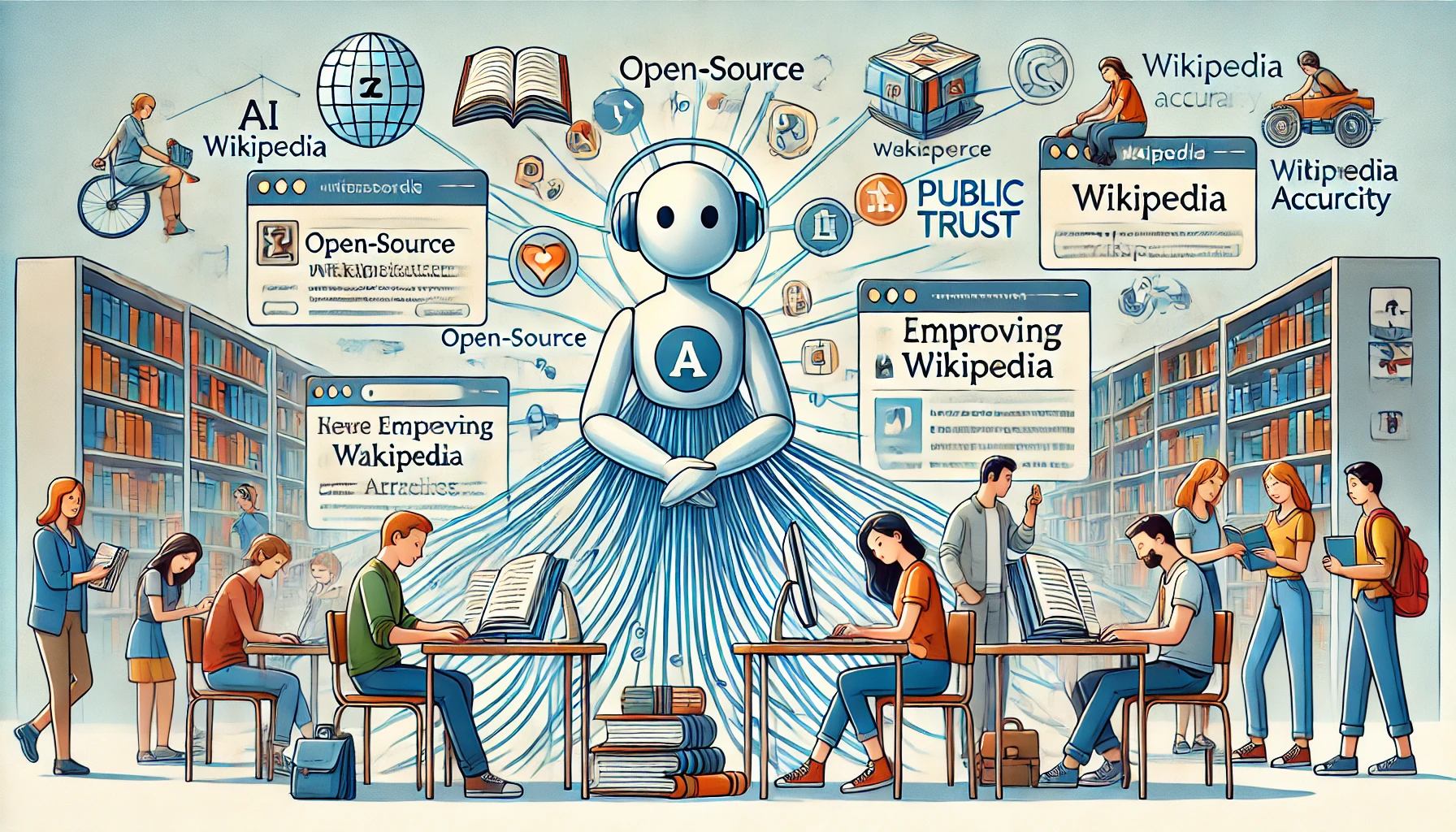I had this idea about the problem of misinformation and how it could maybe be improved.
So I had a chat with my friend ChatGPT and below you can read what we came up with. The full chat is available here.
Training Tomorrow’s Minds to Strengthen Today’s Internet: Why Universities and Wikipedia Should Partner in an Open-Source AI Librarian Project
Imagine this: university students around the world, from first-year philosophy students to PhD data scientists, are working on assignments that not only fulfill their curriculum requirements but actively contribute to a cleaner, more accurate internet. By collaborating with universities and Wikipedia, this AI librarian project could offer students hands-on experience in research, writing, peer reviewing and data science, all while improving the quality of online information.
Why Universities?
Universities are ideal partners because they hold a natural synergy between learning and knowledge verification. Picture this: students work on projects to analyze Wikipedia entries or website content in their subject area. Instead of merely grading their work and moving on, each student’s research gets pooled into the AI librarian’s database, helping to refine its accuracy and sources. With an incentive to uphold integrity, students learn the curriculum while contributing to something bigger—an initiative with real-world impact.
This would make the academic journey tangible. A biology major could fact-check Wikipedia’s entries on cell biology, while a history student could verify dates and details in ancient history articles. Over time, this creates an army of informed contributors who are actively refining the AI librarian and improving the web in the process.
Why Wikipedia?
Wikipedia is already a public library of sorts, built on collaborative contributions from individuals worldwide. But Wikipedia also has a big challenge: keeping entries accurate, unbiased, and free of misinformation. By collaborating with universities, Wikipedia could serve as a training ground for students while acting as the initial “sandbox” to test the AI librarian’s assessments. Students could refine articles on Wikipedia and flag inaccuracies or outdated information, and the AI librarian could learn by observing these interactions.
Imagine a feedback loop: students enhance Wikipedia entries, the AI librarian learns from these updates, and Wikipedia itself becomes a trusted training source for the AI, which in turn can then apply its knowledge across the wider internet. And universities could compete on who contributes the most.
A Cross-Referencing Web of Knowledge
This approach could lead to a much more interconnected, cross-referenced internet. The AI librarian would continuously crawl the web, indexing sources and identifying potential inaccuracies or biases in real time. As students work on Wikipedia or other university-affiliated projects, they train the AI librarian to recognize quality information and spot content that needs improvement. And we can integrate a log for transparency.
The Benefits: Accuracy, Education, and Civic Responsibility
- Accuracy and Public Trust: With student-contributed insights powering the AI, web users gain access to information with a higher standard of reliability. This approach democratizes fact-checking and reduces the likelihood of misinformation.
- Educational Depth: Students gain hands-on experience with critical thinking, research, and responsible content creation, all while participating in a project that reinforces the relevance of their studies.
- Civic Engagement: By collaborating with Wikipedia and the broader web, students feel connected to a mission larger than a single assignment. It’s a real chance to give back to the internet—a world they are part of every day.
Final Thoughts
An open-source AI librarian that partners with universities and Wikipedia could transform both online content and education. It’s a win-win approach: universities gain a new, impactful way to engage students, Wikipedia and other resources gain accuracy, and we all benefit from a more trustworthy internet. So let’s build a future where the students of today help create a more informed web for tomorrow.
Footnotes
I made some small changes that are not in the linked conversation.
Scientific research today faces the complex issue of commercial interests infiltrating academia, which can sometimes influence findings and compromise the perceived objectivity of research. Universities, often relying on corporate partnerships and funding, may feel pressure to produce favorable outcomes, leading to biases in published studies. This open-source AI librarian project, if designed for transparency and non-commercial motivations, could help shine a light on such influences. By cross-referencing findings and highlighting inconsistencies, it might encourage universities and researchers to adopt practices aligned with broader public trust and integrity. For more on how profitability impacts science, see The Guardian’s article.
